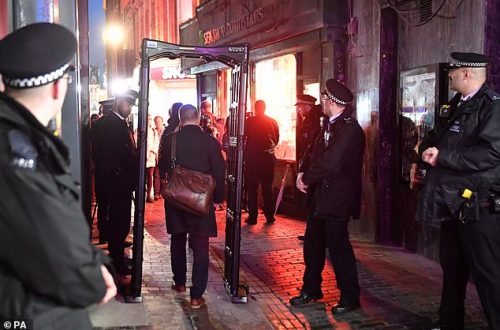The Business Insider reported two weeks ago:
Islamic terrorist groups are setting up shop in Mexico and forming alarming ties with the country’s brutal drug cartels, according to a 2010 internal memo from the Tucson Police Department.
From the memo:
With the arrest of Jameel Nasr and Jamal Yousef, obvious concerns have arisen concerning Hezbollah’s presence in Mexico and possible ties to Mexican drug trafficking organizations (DTO’s) operating along the U.S. – Mexico border. The potential partnership bares alarming implications due to Hezbollah’s long established capabilities, specifically their expertise in the making of vehicle borne improvised explosive devises (VBIED’s).
Recent incidents involving the use of VBIED’s in Mexico mark a significant change in tactics employed by DTO’s and conjures images expected to be seen in the Middle East. While no connection has been made, Hezbollah’s extensive use of VBIED’s raises strong suspicion concerning a possible relation to Mexico’s DTO’s.
The Tucson Police Department are right to be concerned about possible ties between organised crime in Latin America and Hezbollah.
Matthew Levitt explains why in CNN.
Money.
Payments from Iran are becoming less reliable, ever since the rigged elections of 2009:
International sanctions against Iran’s nuclear program, meanwhile, became harsher. Combined with crippling subsidies for basic commodities and soaring inflation, these factors severely hampered Iran’s economic growth. Then, as the economy crashed, Tehran’s ruling clerics blatantly stole the country’s June 2009 elections, spurring months of protests by the Green Movement.
According to Israeli intelligence, these economic pressures forced Tehran to slash its annual budget for Hezbollah by 40 percent in early 2009.
So Hezbollah concentrated its efforts on strengthening ties with organised crime:
Signs of Hezbollah’s increasing reliance on criminal activity quickly began popping up across the globe. In February of this year, U.S. prosecutors indicted seven U.S. citizens — one of whom is a known Hezbollah associate — for allegedly conspiring to aid the Taliban.
Further on:
The list of Hezbollah-linked criminal projects continues. In Miami last October, a group of businessmen pled guilty to attempting to ship electronics to a shopping center in South America that the U.S. Treasury Department designated as a Hezbollah front.
Levitt suggests Hezbollah will have to be battled as a crime network as well as a terror network. and suggests that the USA will have to work with South American countries against Hezbollah, along these lines. Levitt concludes:
A model for such a cooperative effort is the South American response to Hezbollah’s bombing of the Jewish community center in Buenos Aires in 1994. Law-enforcement and intelligence agencies in Argentina, Brazil, and Paraguay teamed with their U.S. counterparts to disrupt Hezbollah’s presence in their countries by arresting the organization’s operatives on criminal, rather than terrorism, charges and targeting its financial interests.
A similar but worldwide effort today – when Hezbollah is already being challenged at home by the indictment of several Hezbollah operatives for the murder of former Lebanese Prime Minister Rafiq Hariri – would weaken Hezbollah’s global support network and undermine its reputation at home and across the globe, exposing it as a criminal gang rather than a standard bearer of “resistance” in Lebanon.
I hope that Hezbollah is eventually shut down and its crime networks are collapsed in the Americas, one day.
The thing is though, Hezbollah could simply follow Hamas’ example, and raise funds in the UK via charitable organisations that are not challenged by the Charity Commission or by government.
